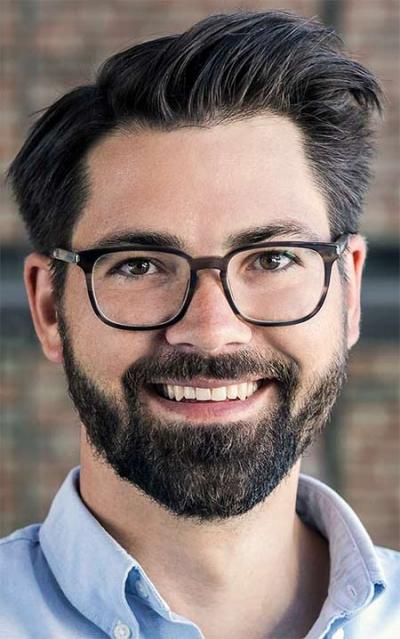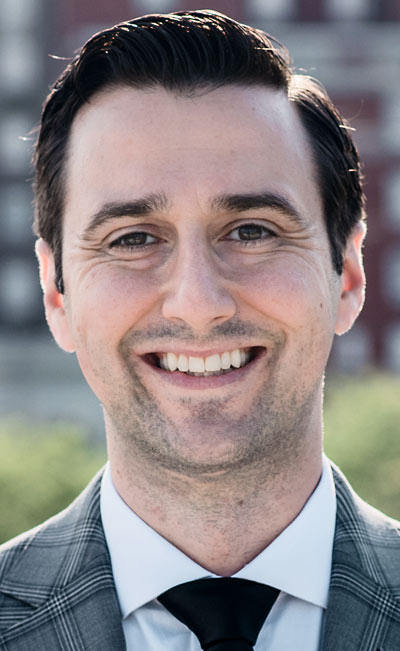

 At EuroDIG 2019 a workshop was organised around the topic of consolidation on the Internet. It was organised around four angles: technique, competition, society and human rights and; future research. One thing became extremely clear: no one contested that consolidation is taking place nor that this already has and will have an impact on the Internet and consecutively on society. more
At EuroDIG 2019 a workshop was organised around the topic of consolidation on the Internet. It was organised around four angles: technique, competition, society and human rights and; future research. One thing became extremely clear: no one contested that consolidation is taking place nor that this already has and will have an impact on the Internet and consecutively on society. more
 Tonight (27 Sep 2019) you can watch the 2019 Internet Hall of Fame induction ceremony streaming live out of Costa Rica. Eleven individuals from six countries will be inducted into the Internet Hall of Fame (IHOF) today. The 2019 class of inductees have expanded the Internet's reach into new regions and communities, helped foster a greater understanding of the way the Internet works, and enhanced security to increase user trust in the network. more
Tonight (27 Sep 2019) you can watch the 2019 Internet Hall of Fame induction ceremony streaming live out of Costa Rica. Eleven individuals from six countries will be inducted into the Internet Hall of Fame (IHOF) today. The 2019 class of inductees have expanded the Internet's reach into new regions and communities, helped foster a greater understanding of the way the Internet works, and enhanced security to increase user trust in the network. more
 There's a well-documented crisis facing the domain name system: very few who rely on domain name registration data from the Whois database to perform vital functions can do so any longer, which is escalating consumer harm and abuse on the internet worldwide. And the problems, thanks to ICANN's overly restrictive policy post-GDPR and a failing policy process, are piling up. more
There's a well-documented crisis facing the domain name system: very few who rely on domain name registration data from the Whois database to perform vital functions can do so any longer, which is escalating consumer harm and abuse on the internet worldwide. And the problems, thanks to ICANN's overly restrictive policy post-GDPR and a failing policy process, are piling up. more
 Since the first undersea cable was completed in 1858 to deliver telegraph messages between the US and England, we've had an extensive network of undersea cable networks that enable communications between continents. Earlier this year there were 378 undersea fiber cables in place that stretch over 745,000 miles. Here's an interactive map that shows all of the cables... What's most intriguing about the map is that there are a few cities around the world where numerous cables terminate. more
Since the first undersea cable was completed in 1858 to deliver telegraph messages between the US and England, we've had an extensive network of undersea cable networks that enable communications between continents. Earlier this year there were 378 undersea fiber cables in place that stretch over 745,000 miles. Here's an interactive map that shows all of the cables... What's most intriguing about the map is that there are a few cities around the world where numerous cables terminate. more
 The ICANN Security and Stability Advisory Committee (SSAC) and the Internet Society Deploy360 Programme are planning a DNSSEC and Security Workshop on Wednesday, 06 November 2019, during the ICANN66 meeting held from 02-07 November 2019 in Montreal, Canada. The original DNSSEC Workshop has been a part of ICANN meetings for many years and has provided a forum for both experienced and new people to meet, present and discuss current and future DNSSEC deployments. more
The ICANN Security and Stability Advisory Committee (SSAC) and the Internet Society Deploy360 Programme are planning a DNSSEC and Security Workshop on Wednesday, 06 November 2019, during the ICANN66 meeting held from 02-07 November 2019 in Montreal, Canada. The original DNSSEC Workshop has been a part of ICANN meetings for many years and has provided a forum for both experienced and new people to meet, present and discuss current and future DNSSEC deployments. more
 Ren Zhengfei tells the Economist and the NY Times he is prepared to give the US essentially everything the President has asked, including the crown jewels: the complete design and source code of Huawei's 5G system. Ren would "license the entire Huawei 5G platform to any American company that wants to manufacture it and install it and operate it, completely independent of Huawei." more
Ren Zhengfei tells the Economist and the NY Times he is prepared to give the US essentially everything the President has asked, including the crown jewels: the complete design and source code of Huawei's 5G system. Ren would "license the entire Huawei 5G platform to any American company that wants to manufacture it and install it and operate it, completely independent of Huawei." more
 One of the ongoing recommendations to improve deliverability is to send email that is timely and relevant to the recipient. The idea being that if you send mail a recipient wants, they're more likely to interact with it in a way that signals to the mailbox provider that the message is wanted. The baseline for that, at least whenever I've talked about timely and relevant, is that the recipient asked for mail from you in the first place. more
One of the ongoing recommendations to improve deliverability is to send email that is timely and relevant to the recipient. The idea being that if you send mail a recipient wants, they're more likely to interact with it in a way that signals to the mailbox provider that the message is wanted. The baseline for that, at least whenever I've talked about timely and relevant, is that the recipient asked for mail from you in the first place. more
 Over at the ECI blog, Jonathan Homa has a nice article about the importance of network planning: In the classic movie, The Graduate (1967), the protagonist is advised on career choices, "In one word – plastics." If you were asked by a young person today, graduating with an engineering or similar degree about a career choice in telecommunications, would you think of responding, "network planning"? Well, probably not... more
Over at the ECI blog, Jonathan Homa has a nice article about the importance of network planning: In the classic movie, The Graduate (1967), the protagonist is advised on career choices, "In one word – plastics." If you were asked by a young person today, graduating with an engineering or similar degree about a career choice in telecommunications, would you think of responding, "network planning"? Well, probably not... more
 In July 2019, Netzpolitik and others leaked an internal document by DG Connect that outlines the European Commission's thoughts on an update of the E-Commerce Directive. Based on this document, it seems that the domain name system and its actors will be prominently addressed in the Ursula von der Leyen's Commission-cycle from 2019 to 2025. more
In July 2019, Netzpolitik and others leaked an internal document by DG Connect that outlines the European Commission's thoughts on an update of the E-Commerce Directive. Based on this document, it seems that the domain name system and its actors will be prominently addressed in the Ursula von der Leyen's Commission-cycle from 2019 to 2025. more
 In an age where cyber threats and attacks have reached a point of ubiquity, managing your organization's network security single-handedly may no longer be sufficient. The increasing volume and sophistication of threats, not to mention the continuous advancement in attack tools and their perpetrators' skills and know-how, has led to concerns on whether potential targets can keep up. more
In an age where cyber threats and attacks have reached a point of ubiquity, managing your organization's network security single-handedly may no longer be sufficient. The increasing volume and sophistication of threats, not to mention the continuous advancement in attack tools and their perpetrators' skills and know-how, has led to concerns on whether potential targets can keep up. more
 I haven't seen it talked about a lot, but the FCC has set aside millimeter wave spectrum that can be used by anybody to provide broadband. That means that entities will be able to use the spectrum in rural America in areas that the big cellphone companies are likely to ignore. The FCC set aside the V band (60 GHz) as unlicensed spectrum. This band provides 14 GHz of contiguous spectrum available for anybody to use. This is an interesting spectrum because it has a few drawbacks. more
I haven't seen it talked about a lot, but the FCC has set aside millimeter wave spectrum that can be used by anybody to provide broadband. That means that entities will be able to use the spectrum in rural America in areas that the big cellphone companies are likely to ignore. The FCC set aside the V band (60 GHz) as unlicensed spectrum. This band provides 14 GHz of contiguous spectrum available for anybody to use. This is an interesting spectrum because it has a few drawbacks. more
 With two simultaneous processes getting underway in the UN General Assembly's First Committee, the UN Group of Governmental Experts (GGE) and the Open-Ended Working Group (OEWG) on Cybersecurity, and several technology and multi-stakeholder initiatives pushing cybersecurity improvement, the world of cyber norms has become both more interesting and more complicated. more
With two simultaneous processes getting underway in the UN General Assembly's First Committee, the UN Group of Governmental Experts (GGE) and the Open-Ended Working Group (OEWG) on Cybersecurity, and several technology and multi-stakeholder initiatives pushing cybersecurity improvement, the world of cyber norms has become both more interesting and more complicated. more
 Unlike most new IETF standards, DNS over HTTPS has been a magnet for controversy since the DoH working group was chartered on 2017. The proposed standard was intended to improve the performance of address resolutions while also improving their privacy and integrity, but it's unclear that it accomplishes these goals. On the performance front, testing indicates DoH is faster than one of the alternatives, DNS over TLS (DoT). more
Unlike most new IETF standards, DNS over HTTPS has been a magnet for controversy since the DoH working group was chartered on 2017. The proposed standard was intended to improve the performance of address resolutions while also improving their privacy and integrity, but it's unclear that it accomplishes these goals. On the performance front, testing indicates DoH is faster than one of the alternatives, DNS over TLS (DoT). more
 Almost every institution which purports to provide space for public accountability includes some sort of formalized process by which the public can have their say. And in almost every instance, they struggle with a tension between the desire to provide a commenting process which is meaningful and substantive (or, at least, which appears to be so), and a desire to adopt whatever course of action the institution thinks is best. more
Almost every institution which purports to provide space for public accountability includes some sort of formalized process by which the public can have their say. And in almost every instance, they struggle with a tension between the desire to provide a commenting process which is meaningful and substantive (or, at least, which appears to be so), and a desire to adopt whatever course of action the institution thinks is best. more
 Orin Kerr recently blogged about a 9th Circuit decision that held that scraping a public web site (probably) doesn't violate the Computer Fraud and Abuse Act (CFAA)... On its surface, it makes sense – you can't steal something that's public – but I think the simplicity of the rule is hiding some profound questions. One, I believe, can most easily be expressed as "what is the cost of the 'attack'"? That is, how much effort must someone expend to get the data? Does that matter? Should it? more
Orin Kerr recently blogged about a 9th Circuit decision that held that scraping a public web site (probably) doesn't violate the Computer Fraud and Abuse Act (CFAA)... On its surface, it makes sense – you can't steal something that's public – but I think the simplicity of the rule is hiding some profound questions. One, I believe, can most easily be expressed as "what is the cost of the 'attack'"? That is, how much effort must someone expend to get the data? Does that matter? Should it? more
Sponsored byVerisign

Sponsored byCSC

Sponsored byRadix

Sponsored byVerisign

Sponsored byWhoisXML API

Sponsored byIPv4.Global

Sponsored byDNIB.com
